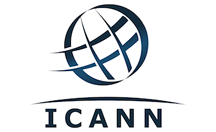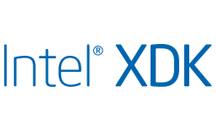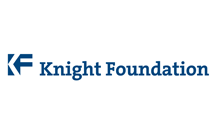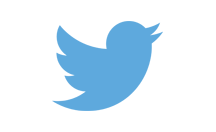25 things you probably didn’t know about the Web
The Web of today was built - and continues to be built - by everyone. Yet it owes much to many people, some who came before its invention in 1989, and all those who have since then made it an invaluable resource for humanity.
To celebrate 25 years of the Web we have gathered 24 facts about Tim Berners-Lee, the Web, the World Wide Web Consortium (W3C), and the World Wide Web Foundation.
In the spirit of the Web, we want your input on what the 25th fact should be. Tell us on social media with hash tag #web25fact.
- Berners-Lee is the son of British mathematicians and computer scientists Mary Lee Woods and Conway Berners-Lee, who worked on the first commercially-built electronic computer, the Ferranti Mark 1.
- In college, Berners-Lee built a computer out of an old television set.
- The Web was not Berners-Lee’s first design for a system to link information. In 1980 he wrote ENQUIRE, whose name came from a Victorian era how-to book called “Enquire Within Upon Everything” owned by Berners-Lee’s parents while he was growing up. The ENQUIRE code has been lost to history.
- Before settling on “the Web,” Berners-Lee thought of the names “Information Mesh”, “The Information Mine”, and “Mine of Information”.
- The Web was first described in a March 1989 proposal from Berners-Lee while at CERN. In it he wrote, “In providing a system for manipulating this sort of information, the hope would be to allow a pool of information to develop which could grow and evolve with the organisation and the projects it describes. For this to be possible, the method of storage must not place its own restraints on the information. This is why a “web” of notes with links (like references) between them is far more useful than a fixed hierarchical system.” For even more about the people who inspired and built the Web, see Berners-Lee’s 2004 presentation How it all Started.
- Mike Sendall, Berners-Lee’s manager at the time, commented on the original proposal “Vague, but exciting.” Fortunately, Sendall thought enough of the proposal to allow Berners-Lee to work on it on the side.
- In 1990, Berners-Lee wrote the first browser and editor, called “WorldWideWeb.app,” which ran on a NeXT computer. Steve Jobs had left Apple to create NeXT Inc., and later returned to Apple.
- WorldWideWeb.app, which took 2 months to write, was also an editor, so the earliest vision of the Web was one where anyone could contribute.
- The first Web site was info.cern.ch, hosted by CERN, on Tim’s desktop computer.
- The early Web pages from 1992 were preserved by Berners-Lee and W3C, but CERN did not serve them at theoriginal address until in April 2013.
- A few simple ideas have played a key role in making the Web a success:
- it is universal: it can be made to work with any form of data, on any device, with any software, in any language. You can link to any piece of information
- it is decentralized: anybody can create a site. This enabled the Web to grow quickly.
- the core technology is royalty-free: because people can implement Web technology royalty-free, this spurs innovation.
- it is the result of global collaboration.
- The Web is not the same thing as the Internet. The Internet protocols describe how to send packets of information between pieces of software. The first Internet protocols were defined in 1969. Since then, many applications have used them in different ways, including Email, FTP, and the Web. The Web is any information that is identified with a URL (Universal Resource Locator). That makes the URL the most fundamental piece of Web technology.
- The double slash “//” in URLs was an idea Berners-Lee copied from the Apollo workstation’s ‘domain’ file system. Microsoft later adopted double backslash ‘\\’ under the same influence.
- Although many Web site addresses start with “www” there is no requirement they begin this way; it was just an early convention to help people recognize that someone was running a Web server.
- The WorldWideWeb browser was made available on on the public Internet by FTP, and promoted on network news messages in August 1991. Other browsers soon followed, including ViolaWWW, Midas, Erwise, and Samba. Mosaic, which later became Netscape, was released in 1993. You can experience the early ‘line mode’ browser that was released in 1992 with a line mode browser emulator made available in 2013.
- On 30 April 1993, CERN put WorldWideWeb in the public domain, a critical milestone in enabling broad adoption of the Web.
- In October 1994, Berners-Lee launched the World Wide Web Consortium (W3C) to develop common standards for core Web technology. The goal of the organization is to ensure the Web is available to all, and not fragmented into proprietary silos. Today four neutral academic organizations host the activities of the Consortium: MIT, ERCIM, Keio University, and Beihang University.
- In 2004, W3C adopted an industry-leading Royalty-Free patent policy to further Berners-Lee’s vision of the Web as an open platform for innovation.
- Berners-Lee was knighted by Queen Elizabeth II in 2004. While some call him “Sir Tim”, he most often goes by “timbl”.
- In 2008, Berners-Lee launched the World Web Foundation. Its mission? To establish the open Web as a global public good and a basic right, ensuring that everyone can access and use it freely.
- Today it is estimated that just under 40% of the world’s population has Internet access. On average, a fixed broadband connection costs over a third of income in the developing world. (Source: ITU)
- The languages most used in online communications are, in order: English, Chinese, Spanish, Japanese, and Portuguese.
- Estimates of the number of Web pages vary greatly, but it is surely in the tens of billions. Many estimates depend on what search engines access, but it is expected that many times more public pages exist that are not indexed by search engines.
- Internet live stats estimates that the number of Web sites will reach 1 billion by the end of 2014, this anniversary year.










Comments
Arise
Thank You Lee for this great invention which help to become what we are today. I couldn’t even believe today that the Web was not there when I was studying in 3Rd standard. Amazing and the power of Opening its capability to Everybody in this World.
Jeroen
Thanks for enriching our lives. Let’s make sure the web remains an open platform.
lamsiowai
由於我近來使用的網頁存在了一些什麼主要條件而令到你們更關注本人使實際上能夠使得自己更有明確的觀點及開放於關注綱絡上各個變化及習慣性,但由於一些綱絡主要存在告告收益以令一些主要網絡變成了攻擊對象,從使以往本人也會進入了這些綱路,由其是:(銀行,交友,購物,遊戲及旅遊)等。無論是怎樣安全的綱站也會被复制及使一些騙局令到不知明的損失。
到了今天為止我也會可能進入了這些綱絡,最好的例子就是本人,往往從互聯網搜尋而看到中獎或是接近自己相近的名稱時便進入了這些不法的互聯網,但一般來說每個自行設定的個人資料及密碼也要進行更換及清除以往使用的記錄及郵件,可能本人自使用以來沒有這知識及習慣性。如使用方便自己感到快捷搜索且沒留意在主要互聯網上的結尾是否有所不同或主要網頁上的進入例變成了不同名稱。以令到損失。
總括:進行搜索及進行交易時注意各使用條款及名稱及清除紀錄,如不必要時不要在互聯網上使用(自己的名稱及電子郵件)及進行交易,但心定要感謝各互聯網的團隊使自己從互聯網上學到了重要及關鍵知識及有所怀疑時可進行致電給各服務互聯網公司、進行確定。及維護他人及自己利益。
但必須說一句,互聯網上的各使用條款不明確及標籤有差異須進行升級及優化。
kingsley
from one brit to another sir Tim thank you and for making it free only a brit would do this because we know the world needs to be show the right way and it is to important , for those greedy people to have
Aaron
Thanks for give us access to the knowledge thru the world wide web, thanks for change the way people study, buy, make business, etc. Thanks for keep the web open.
Thank you, Sir Tim Berners-Lee
Ujamshi Khandla
Salute sir, Berners-Lee.
Human makes better technology and the technology makes better life, sir, you make both.
Luz Maria Silva
Gracias Sir Tim Berners-Lee. Con la WWW usted cambió al mundo, abrió oportunides impensables para la humanidad y sobre todo hizo que se desatara la revolución más retadora de la historia: la que obliga al ser humano a pensar como ser humano, a dejar atrás los trabajos repetitivos que puede hacer una máquina. Además, ahora ya no importa dónde vive uno, tiene a su alcance la misma información que quienes lo hacen en países desarrollados.
Shelly Nielsen
Thank you Sir Tim Berners-Lee. What would our lives be without access to the world and the universe that the world wide web has allowed us? And, yes, we must keep it free for all to access.
R J Reynolds
Thank you Sir Tim for expanding our horizons, changing how we perform many daily activities, giving us access to one another around the globe, enabling many to know what democracy is, and for what I consider my very own worldwide virtual library. God bless all your endeavors!
Heather Violette
Thank you for the gift of knowledge. The people, places, that I will never get to see in person, I have at my fingertips because of you. Thank you!-Heather
Fadi Shaker
Sir Tim Berners-Lee, the word thank you is not enough, you changed the whole world, imagine the time saving to get a piece of information, to send a letter, to get an advice,..... and a lot more.
Let’s work together to keep it free and available for everybody on the globe.
Sabrina Hester
The World Wide Web is a resource that I use daily. Thank you!
Ann
The web, and internet have helped so many people with learning disabilities. My Mum would have been so proud of me. A person with dyslexia, and in my fifties learned to type. Using the web gave me confidence.
Thank you to Sir Timbl, lets keep this going so everyone has accesses to free web, and its teachings.
Phil Vuchetich
Thanks, timbl. I remember computing before the web, and the iterations to get where we are now. Looking forward to get everyone connected around the globe.
-pjv
Virginia Freyre
Congratulations Sir Tim! Amazing invention that transformed the way we use and access information. I am grateful for the web and how the library world is using and changing to meet the world’s information needs! Libraries are great equalizers and the perfect vehicle to provide free access to all!
Serge
The greatest invention of the XX century. It’s as significant as E=MC², Standard Model, LHR or Higgs boson. Спасибо Вам большое, Sir Tim Berners-Lee!
Gregory M
I nominate Sir Tim Berners-Lee for the Nobel Peace Prize for his outstanding invention that has brought the world together and for his continued work to keep it free to enrich the lives of all.
Austin, Texas USA
NancyS
Freeeeeeeee to beeeeeee a net traveler forever!! FREE enterprise, FREE social media, FREE FOR ALL AROUND THE GLOBE!! By keeping this FREEDOM the World Wide Web global community has the responsibility of being actively involved in keeping peace, guarding against all forms of maliciousness, especially and including bullying, content protection, and engaging self-governing communication amongst all communities. The World Wide Web global community’s greatest purpose should be one of forming a vibrant, cohesive, well-functioning vast network encompassing all cultures around the world in a nurturing environment for continued growth! Did I just say all that?
Nancy Sexton
Oh yeah, and a GRAND THANKS to Mr. Tim Berners-Lee for this ever-so GRAND creation, The World Wide Web. And a GRAND THANKS also to Mr. Berners-Lee’s parents, Mary Lee Woods and Conway Berners-Lee, for their having created his awesomeness, Mr. Tim Berners-Lee. Thank you, thank you, thank you!!
NancyS
Silver Fang
Thank you for sharing your vision of the World Wide Web with us, Sir Berners-Lee. You have changed the world more than you’ll ever know.
lamlne
merci beaucoup.l’h istoire retiendra! c’est la seule place où tous les gens sont égaux
Ty C. Freeman
The World Wide Web is on the same level as the Gutenberg Press - a Global game-changer for the unobstructed exchange of information. Just as Gutenberg ushered in the Renaissance, Reformation, the Age of Enlightenment, and the Scientific Revolution and laid the material basis for the modern knowledge-based economy and the spread of learning to the masses (H/T, Wikipedia!!), the Web has taken the spread of ideas faster and further, leading to an ever-widening global knowledge base.
HOWEVER… just as there is no “Right To Free Books”, there can be no “Right to Free Web Access”. One does not inherently have a right to ANYTHING someone else must provide for you, be it food, housing, health care OR access to the World Wide Web. Because if you demand someone else provide it to you without subsequently offering full & equal compensation, you have taken away THEIR rights.
alan geeves
The web itself is free It always has been and by design always will be. That is how it was created.
The only costs are the costs of sending data to or from the web and the cost of whats actually there. You pay your internet provider for data nor world wide web You or at least someone pays for the content. Even a web search has a value but this is paid for by the provider of the search. They pay for this out of advertising on that search page.
Moffy
Thankyou Sir Tim, without you my life will never change this far. #respect
Godfrey Osivue John
The world with the web is like the earth without the sun.Thanks for bring the brightest sun to earth.congratulations on your birthday!
Kartika Monoarfa
Thank you so much, Sir Timbl! :)
KIMICO
Thanks for yor informations, it’s usefull for everybody..
Fatima Sapart
Thanx!Sir Tim Berners Lee and team much appreciated for making communication so easy.and to think it all started by fiddling with a tv! Enjoy your 25th Web birthday. And to Your parents too’thanx!
Svjetlana Polack
Thank You Sir Tim
Mar10
Without Sir Tim’s forward thinking how could we imagine what our world would be like today. The world is changing today so that the individual interests can be addressed. This is true in financial, medical, political and all other aspects of life. Hats off to Sr Tim…..
A. Scholten
Thank you Sir Berners-Lee for making your vision and connections so connecting and alive. I can’t imagine what my (work and) life would have been like without this beautiful means of interaction with so many people around the world.
Tim Oestmann
thank you Tim Berners-Lee and CERN for the thoughtful and compassionate vision of making the Web universal, decentralized and royalty-free. I hope you have the satisfaction that you deserve